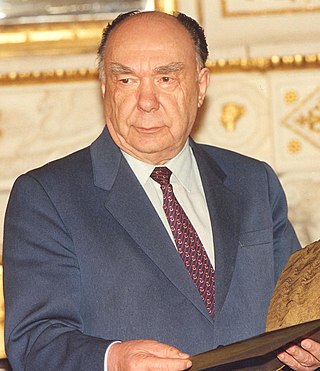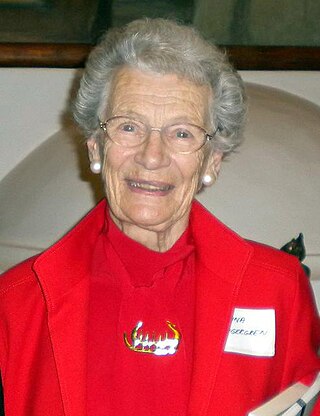Creation of the RWIMH
Dr. Vera Parnes illegally founded the Raoul Wallenberg Society and created what she called the “Raoul Wallenberg Museum” in Moscow, [1] USSR, housing a small collection of books, articles and artwork devoted to Wallenberg. The Society organized expositions at cultural events in Moscow and delivered lectures in schools. The Society appealed to Mikhail Gorbachev demanding any records regarding Wallenberg, [2] but received no response. She finally published an open letter to Gorbachev in a news paper (Литературная Газета [Literary Gazette], September 5, 1990) [3] imploring the Soviet leader to honour Wallenberg as an honorary citizen.
Following the 1991 coup against Gorbachev, Dr. Parnes left the USSR and eventually established The Raoul Wallenberg International Movement for Humanity in Montreal, Canada, on the occasion of what may have been Wallenberg's 80th birthday, to develop a stronger international organization aimed at promoting Wallenberg's achievement, and discovering the truth about his imprisonment.
Work and Accomplishments
The mission of the RWIMH is to promote the memory and humanitarian principles of Wallenberg – his lessons, ideas, courage, and outstanding humanism – so that future generations may grow and improve in order to develop and enhance the values of enlightenment in the face of ideologies endangering our civilization. The Movement organises conferences exhibitions, media reports, lectures, commemorative ceremonies, and vigils to educate the public and to combat growing neo-Nazist Holocaust denial, ethnic tension, and discrimination guided by the example provided by Wallenberg. [4]
Beginning in 1993, the RWIMH petitioned the government of Canada to honour Raoul Wallenberg. The Canadian Parliament declared January 17 Raoul Wallenberg Day in 2001, having received the support of, among others, Members of Parliament Clifford Lincoln, Irwin Cotler, and Sheila Copps, and Senator Sheila Finestone. [5]
Some of the RWIMH's other work and accomplishments include: Raoul Wallenberg Square (and monument), Teaching Guide (available from the RWIMH website), “Search for the Truth” (an international conference investigating Wallenberg's imprisonment), annual conferences, meetings, and exhibitions, The Wallenberg Bulletin, RWIMH Certificate of Honour, Raoul Wallenberg Archives (compiled research pertaining to Wallenberg), and the planting of a grove in Jerusalem. [6]
The RWIMH is currently preparing to honour Nobel Peace Prize Laureate Andrei Sakharov later this year, and to celebrate the 25th anniversary of the declaration of Canada's first honorary citizen, Raoul Wallenberg, next year.

Human rights in the Soviet Union were severely limited. The Soviet Union was a totalitarian state from 1927 until 1953 and a one-party state until 1990. Freedom of speech was suppressed and dissent was punished. Independent political activities were not tolerated, whether they involved participation in free labor unions, private corporations, independent churches or opposition political parties. The citizens' freedom of movement was limited both inside and outside the country.

Raoul Gustaf Wallenberg was a Swedish architect, businessman, diplomat, and humanitarian. He saved thousands of Jews in German-occupied Hungary during the Holocaust from German Nazis and Hungarian fascists during the later stages of World War II. While serving as Sweden's special envoy in Budapest between July and December 1944, Wallenberg issued protective passports and sheltered Jews in buildings which he declared as Swedish territory.

Algirdas Mykolas Brazauskas was a Lithuanian politician who served as the fourth president of Lithuania from 1993 to 1998. He also served as the prime minister of Lithuania from 2001 to 2006. Brazauskas was the first democratically elected president of post-Soviet Lithuania.

Lev Zalmanovich (Zinovyevich) Kopelev was a Soviet author and dissident.

Alexander Nikolayevich Yakovlev was a Soviet and Russian politician, diplomat, and historian. A member of the Politburo and Secretariat of the Communist Party of the Soviet Union throughout the 1980s, he was termed the "godfather of glasnost", and was the intellectual force behind Mikhail Gorbachev's reform programme of glasnost and perestroika.

Gennady Ivanovich Yanayev was a Soviet politician. Yanayev's political career spanned the rules of Khrushchev, Brezhnev, Andropov and Chernenko, and culminated during the Gorbachev years. Yanayev was born in Perevoz, Gorky Oblast. After years in local politics, he rose to prominence as Chairman of the All-Union Central Council of Trade Unions, but he also held other lesser posts such as deputy of the Union of Soviet Societies for Friendship and Cultural Relations with Foreign Countries.

Per Johan Valentin Anger was a Swedish diplomat. Anger was Raoul Wallenberg's co-worker at the Swedish legation in Budapest during World War II when many Jews were saved because they were supplied with Swedish passports. After the war, he spent a lot of time trying to clarify Wallenberg's fate.
Marvin William Makinen has been a member of the faculty at the University of Chicago since 1974 and is a founding member of the Human Rights Board at the university.

The Night of the Murdered Poets was the execution of thirteen Soviet Jews in the Lubyanka Prison in Moscow on 12 August 1952. The arrests were first made in September 1948 and June 1949. All defendants were falsely accused of espionage and treason as well as many other crimes. After their arrests, they were tortured, beaten, and isolated for three years before being formally charged. There were five Yiddish writers among these defendants, all of whom were part of the Jewish Anti-Fascist Committee.

Igor Korchilov is a top-level Russian-English conference interpreter who worked with Soviet leader Mikhail Gorbachev from 1987 to 1990, a period that covered the Cold War era.

Blinken Open Society Archives is an archival repository and laboratory that aims to explore new ways of assessing, contextualizing, presenting, and making use of archival documents both in a professional and a consciously activist way. It was founded by George Soros in 1995, and opened in 1996 as a department of the Central European University. Originally called simply Open Society Archives (OSA), in 2015 it was renamed Vera and Donald Blinken Open Society Archives after receiving a major donation from the couple.

Kronid Arkadyevich Lyubarsky was a Russian journalist, dissident, human rights activist and political prisoner.

Sergei Adamovich Kovalyov was a Russian human rights activist and politician. During the Soviet period he was a dissident and, after 1975, a political prisoner.
Susan Mesinai is a poet, author and researcher/activist into the fates of foreign prisoners who disappeared into the Soviet Gulag during World War II and the Cold War. Co-founder of the Ark Project (1992–2005), she was founding president of the Independent Investigation into Raoul Wallenberg’s Fate, an educational human rights organization that furthers groundbreaking research carried out in the former Soviet Union, independently and under the aegis of an official Swedish-Russian working group.
Tatyana Mikhailovna Velikanova was a mathematician and Soviet dissident. A veteran of the human rights movement in the Soviet Union, she was an editor of A Chronicle of Current Events for most of that underground periodical's existence (1968–1983), bravely exposing her involvement with the anonymously edited and distributed bulletin at a press conference in May 1974.

Pamela Braun Cohen is an activist in the American Soviet Jewry movement. She began her activist work in the Chicago Action for Soviet Jewry in the 1970s and served as the national president of the Union of Councils for Soviet Jews (UCSJ) from 1986-1997.
In 1965 a human rights movement emerged in the USSR. Those actively involved did not share a single set of beliefs. Many wanted a variety of civil rights — freedom of expression, of religious belief, of national self-determination. To some it was crucial to provide a truthful record of what was happening in the country, not the heavily censored version provided in official media outlets. Others still were "reform Communists" who thought it possible to change the Soviet system for the better.

The Raoul Wallenberg Centre for Human Rights (RWCHR) is a Canadian non-governmental organization dedicated to pursuing justice through the protection and promotion of human rights. The RWCHR's name and mission is inspired by Raoul Wallenberg's humanitarian legacy.

Nina Viveka Maria Lagergren was a Swedish businesswoman and the half-sister of Raoul Wallenberg, and the leading force to find out what happened to him after his disappearance. She was the founder of the Raoul Wallenberg Academy. She also presented Sommar i P1 in 2014 on Swedish Radio. She was the mother-in-law of Kofi Annan.
![Raoul Wallenberg
[Paul Lancz, bronze (1996)] RWSquare MTL.JPG](http://upload.wikimedia.org/wikipedia/en/thumb/b/b1/RWSquare_MTL.JPG/175px-RWSquare_MTL.JPG)














